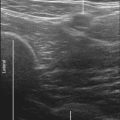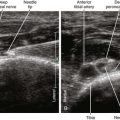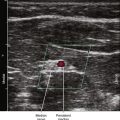
As a healthcare professional, you understand the importance of staying current with the latest advancements in medical training. The emergence of online education platforms has made it easier than ever to access comprehensive training materials across various medical specialties. This transformation offers both challenges and opportunities for those in the field.
The Rise of Online Education in Medical Training
The advent of digital technology has paved the way for significant changes in how medical education is delivered. You no longer need to rely solely on traditional classroom settings; instead, online platforms provide flexible learning options tailored to your schedule. This development has been particularly beneficial for online nursing programs in New England area, where healthcare professionals can now pursue advanced degrees without geographical constraints.
Online education platforms offer a diverse range of courses and materials that cater to different learning styles. Whether you prefer video lectures, interactive simulations, or textual content, there is something available for everyone. This adaptability ensures that you can find the most effective methods to enhance your skills and knowledge.
The impact of online education extends beyond convenience; it’s reshaping the very fabric of medical training. Virtual classrooms and digital laboratories now allow for collaborative learning experiences that transcend geographical boundaries. Medical professionals from different parts of the world can engage in real-time discussions, share insights, and learn from diverse perspectives. This global approach to education fosters a more comprehensive understanding of medical practices and cultural nuances in healthcare delivery, ultimately preparing you for the increasingly interconnected world of modern medicine.
AI Integration
The integration of artificial intelligence (AI) and machine learning algorithms into online medical education platforms is further revolutionizing the learning experience. These technologies can analyze vast amounts of medical data, identify patterns, and provide personalized learning recommendations. For instance, AI-powered systems can assess your performance in virtual patient scenarios and offer targeted feedback to improve your diagnostic skills. This level of customization ensures that you’re not just passively consuming information, but actively engaging with content that addresses your specific learning needs and challenges. As AI continues to evolve, it promises to make online medical education even more efficient and effective, preparing healthcare professionals for the complexities of modern medical practice.
Greater Accessibility
One of the most significant advantages of online medical education is its accessibility. Students no longer need to relocate or commute to attend classes, which can be a substantial financial and logistical burden. Online programs make it possible for individuals with varying schedules, such as working professionals or parents, to pursue their education without sacrificing other important aspects of their lives. Additionally, online platforms often offer a variety of multimedia resources, such as videos, interactive modules, and virtual simulations, which can cater to different learning styles and make complex medical concepts easier to grasp.
Increased Representation and Diversity In Healthcare Providers
Online education also has the potential to increase diversity within the healthcare field. By removing barriers related to location, cost, and time, online programs can attract a broader range of students from diverse backgrounds. This increased representation can lead to a more inclusive healthcare environment, where providers better understand and address the needs of various patient populations. Moreover, a diverse healthcare workforce can improve patient outcomes by fostering better communication and cultural competence. Online education thus plays a crucial role in shaping a more equitable and effective healthcare system.
Advantages of Online Medical Education
One of the most significant benefits of online education in medical specialties is the ability to access a wealth of information from reputable sources. Academic publications, official reports, and respected news organizations are readily available at your fingertips. This accessibility allows you to stay up-to-date with the latest research and developments in your field.
Moreover, online education provides opportunities for continuous learning and professional development. You can easily update your knowledge base and acquire new skills as they become relevant. This ongoing education is crucial for maintaining high standards of patient care and staying competitive in your profession.
Another significant advantage of online medical education is its cost-effectiveness. Traditional medical training often involves substantial expenses related to travel, accommodation, and physical learning materials. Online education eliminates many of these costs, making advanced medical training more accessible to a broader range of healthcare professionals. This democratization of education not only benefits individual learners but also contributes to raising the overall standard of healthcare globally. By reducing financial barriers, online education enables more medical professionals to pursue specialized training, ultimately leading to improved patient outcomes across diverse healthcare settings.
The Role of Interactive Technologies
Interactive technologies play a vital role in enhancing the learning experience for medical professionals. Tools such as virtual reality simulations, augmented reality applications, and interactive case studies offer immersive learning environments that closely mimic real-world scenarios. These technologies allow you to practice procedures and decision-making skills in a safe and controlled setting.
This hands-on approach not only boosts your confidence but also improves your competency in performing complex tasks. By incorporating interactive elements into your learning routine, you can bridge the gap between theoretical knowledge and practical application.
Challenges and Future Prospects
Despite the numerous advantages, online education in medical specialties does come with its own set of challenges. Ensuring the quality and credibility of online courses is paramount. It is essential to rely on verified sources and seek accreditation from recognized institutions to maintain high educational standards.
Looking ahead, the future of online medical education appears promising. As technology continues to advance, new tools and methods will emerge, further enhancing the learning experience. Staying adaptable and open to these changes will be key to maximizing the benefits of this educational revolution.
In summary, online education is transforming medical specialties training by providing accessible, flexible, and high-quality learning opportunities. Embracing these advancements will help you stay at the forefront of your field and deliver exceptional patient care.
Conclusion
Online education is transforming medical specialties training in ways that were unimaginable just a few years ago. By offering greater accessibility, flexibility, and diversity, it is opening doors for a new generation of healthcare professionals. While challenges remain, the integration of advanced technologies and the continued evolution of online programs promise a bright future for medical education. As more students and professionals embrace online learning, we can expect to see a more skilled, diverse, and adaptable healthcare workforce, ready to meet the challenges of tomorrow.







